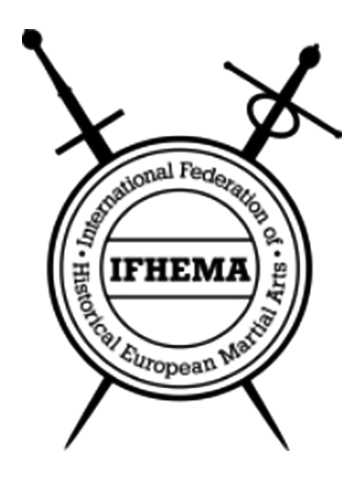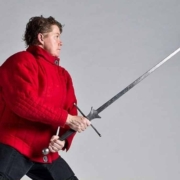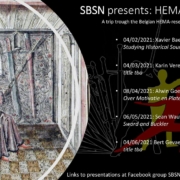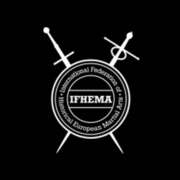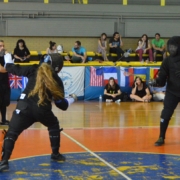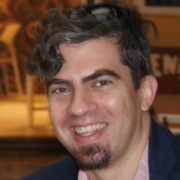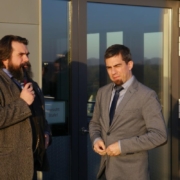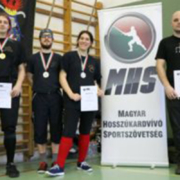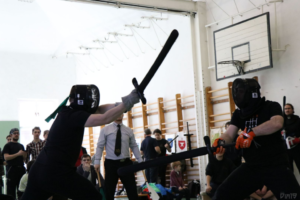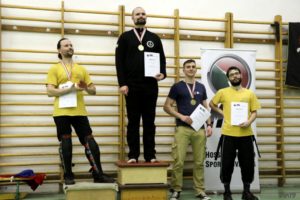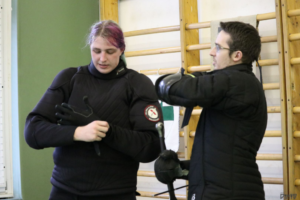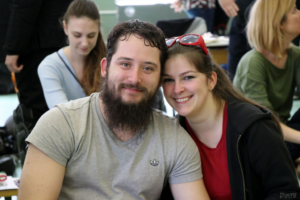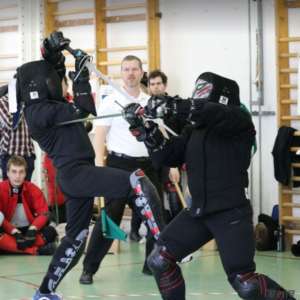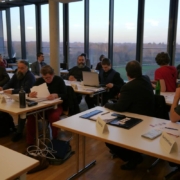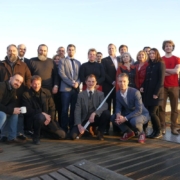Brussels, September 21, 2021
Dear Members,
The Autumn Equinox is a good moment to welcome you all into the new IFHEMA working year 2021-2022, in what we all hope(d) to become the ‘post-pandemic period’. Sadly, the future appears still to be full of uncertainties: Corona is far from just over, many HEMA organisations struggle to make sense of their present and their future situation. IFHEMA tirelessly continues to work with its partners to (re)build our community in the face of this adversity, in the first place by establishing a schedule for a few important initiatives and activities that may help provide HEMAists around the world some grip & positive perspective for the year to come. Let me give you a short overview.
- IFHEMA Cup
- GA08 (our next General Assembly)
- Cooperation and activities
The most urgent of these is the upcoming IFHEMA Cup. Many of you wonder whether it will happen. There are still some uncertainties, but chances are good that it will take place. As soon as we get full confirmation of this edition’s host and co-organiser, our German member federation DDHF, a large scale information campaign will be launched. But in order to allow you to start already with preparations, the key points to note follow below.
- IFHEMA Cup
IFHEMA attaches really great importance to the IFHEMA Cup 2021. It will be the first important international event to take place since the start of the Corona pandemic. We got a strong mandate from the last General Assembly to develop a new format for organising a national teams based HEMA-competition, starting from a solidly XXI-century gender-inclusive philosophy, as well as from the idea that technicality in fighting should be rewarded on an equal par with scoring hits. With our German member federation DDHF, who generously hosts the Cup 21, we have been working out this format, on which more details will follow soon.
But because of the ongoing Corona situation, it is not yet completely sure that the event can go ahead, due to quick evolution of the application of Corona safety criteria in Munich, Bavaria’s capital, our Cup venue. Bavaria recently relaxed its criteria considerably, but the planning of the use of the city’s sports hall is still subject to negotiation by DDHF with the city council. Our German member federation is doing everything it can to secure the date chosen as closely as possible to the date determined by the 2020 General Assembly: either the weekend of 27-28 November or the weekend of 3-4 december 2021. The likelihood that the Cup will go ahead is thus very high, but not yet completely certain. That certainty should be reached at the
latest by the end of this month. A Plan B in case of last minute cancellation of the event pending ad hoc Corona emergencies by the local or national authorities is to postpone the Cup to 2022.
IFHEMA decided to provide (limited) financial support to the international judging team set up by DDHF in cooperation with Austria and Hungary. We are also trying to support members who face real difficulties to participate, by keeping participation fees and/or the prices of accommodation as low as possible.
Cup format: basic outline
DDHF has done a fantastic job in developing a basic concept that includes all the crucial elements required by the GA07 mandate. Fruitful mutual debate and in depth preparatory experimentation on their side has led to a pioneering new, inclusive “people fight people” concept, that opens up tantalising possibilities and can prove pioneering as a potential benchmark for national team competitions in fight sports worldwide in the years to come.
More specifics on the Rule Set, gear requirements, practicalities etc. will follow over the coming weeks through the Cup organiser, DDHF.
The basic features of the Cup format are:
Longsword:
- a single team of 5 per country, 3 male, 2 female participants
- method of composition of teams is an internal member affair, but should be fair and transparent
- teams fight teams, not individuals, and will be classified and rewarded as such
- there is no a priori gender separation, but individual athletes can opt in or opt out for ‘mixed’ or not in their individual fights. Fights will be composed accordingly by the competition organiser
- display of technical competence in fighting is rewarded on the same par as scoring hits
Rapier:
- a single team of 4 per country, 2 male, 2 female participants
- method of composition of teams is an internal member affair, but should be fair and transparent
- teams fight teams, not individuals, and will be classified and rewarded as such
- there is no a priori gender separation, but individual athletes can opt in or opt out for ‘mixed’ or not in their individual fights. Fights will be composed accordingly
- display of technical competence in fighting is rewarded on the same par as scoring hits
More details concerning rules are worked out presently. An international team of judges is being prepared by DDHF in cooperation with our Austrian and Hungarian member federations, to be able to implement the system in a well-prepared, competent manner. Details on format & rules will be communicated asap through a web page prepared by DDHF dedicated to the Cup, as well as through direct instructions to the Team Captains.
We are also preparing jointly a draft for a more general framework that might become the basis for future IFHEMA Cup organisers. This evidently will be subject to further discussion with our members on the basis of what we learn from our experiences this year.
Appropriately enough, given that IFHEMA is a country-based organisation, the IFHEMA Cup will thus be more akin to — if you indulge me in the tennis comparison — the HEMA “Davis Cup” than to Wimbledon.
It is in any case going to be something entirely new and tantalising! I therefore call our members to start preparations for composing their teams, and confirm to our Secretariat their will to participate and the name and email address of their Team Captains. This list will be communicated to the DDHF, which from then on will communicate with you directly. The contact person on the organisers’ side is Thomas Bögle, DDHF’s Vice-President, who will stay in touch with the participating teams through the unique channel of the respective Team Captains. The Secretariat will reach out to you soon to coordinate the collection of their names.
TO DO:
- Confirm ASAP your Federations’ intention to participate in the IFHEMA Cup 2021
- Assign a national Team Captain
- Communicate both your intention and the name + email address of your Captain to the IFHEMA Secretariat. This list of names + contact details will be passed on ASAP by the Secretariat the DDHF, this years’ Cup host and organiser
- Communicate directly with the organiser’s coordinator of the CUP 2021 for instructions (Thomas Bögle, Vice-President of DDHF)
- Compose your teams
- Coming Working Year and General Assembly 2021-2022
A second point, on which more information will follow soon, are the plans for the coming Working Year, apart from the IFHEMA Cup. The first important point is the General Assembly. We shall start the revision process of IFHEMA’s By-Laws. The idea is to accommodate the membership criteria of IFHEMA to countries with more than one representative HEMA structure, rather than just one, as was requested by GA07.
Also, the decision process on some points should become less burocratic. The idea is not to vote on a change of By-Laws already this year, but to have an in-depth discussion about specific proposals, so as to see clearly the advantages and disadvantages of the different approaches. The goal is to come with a final proposal for voting to the GA of 2022.
A third point is cooperation. IFHEMA is setting up with Roger Norling’s HROARR and with Roberto Gotti’s museum. Partners like those can help spread information and communication in the first case, and be a support for activities in the second area define in our By-Laws: cultural heritage. The plan is to set up a major cultural event in 2022 with the Gotti museum as a partner.
A fourth and final point is the Code of Conduct Commission. That has been somewhat delayed, but the plan is to get it back on track with a view to a draft proposal for the 2022 GA.
IFHEMA is determined to help bring new post-Corona perspective to the HEMA community by working as concretely as possible with and for its members. We count on your enthusiastic cooperation, and look forward to seeing you all in Munich for a splashy competitive IFHEMA Cup in a festive glow!
Sincerely yours,
Karin Verelst
